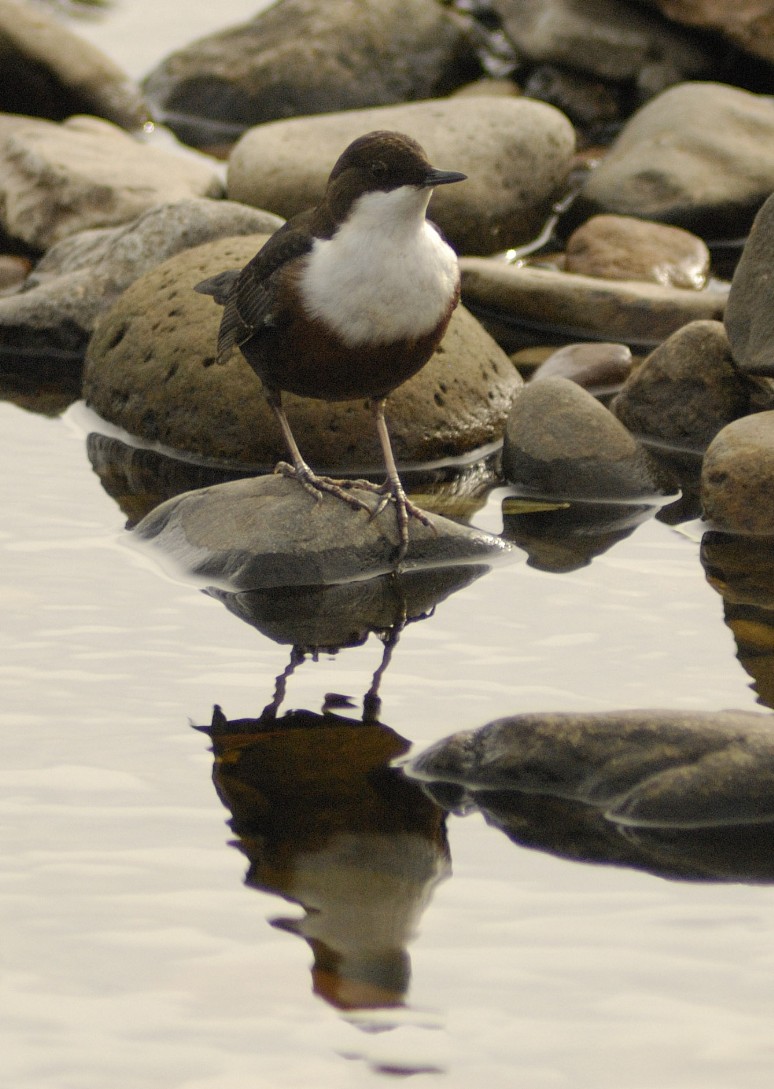Dipper
Reports

One of the species that visiting birdwatchers to Arran are keen to see is the Dipper. This bird is absent from the southeast of the UK. On Arran it is a relatively easy bird to see. It is closely associated with most of our swiftly running shallow rivers and burns. In the winter time, with rivers in spate, the mouths of the rivers can be good areas to find this species.
Its full name is White-throated Dipper ,Cinclus cinclus, also known as the European Dipper or just Dipper. It is an aquatic passerine bird found in Europe, the Middle East and Central Asia as well as the Indian Subcontinent. The species is divided into several subspecies, based primarily on colour differences, particularly of the chest band. The White-throated Dipper is Norway's national bird.
The Dipper is a short-tailed, plump bird about eighteen centimetres long with a low, whirring flight. When perched on a rock it habitually bobs up and down and frequently cocks its tail. The name "dipper" refers to this habit of ‘curtseying’ when perched. It is a fascinating bird to watch perched on rocks, "dipping" with the water swirling and tumbling around it. The white throat and breast contrasts with its dark body plumage and then most remarkable of all it walks into and under water in search of food.
Dipper have evolved this superb ability to hunt underwater. Walking into the water and deliberately submerging, gripping with their strong feet and using the wings effectively for flying under water the Dipper holds itself down by muscular exertion, with its head low and its body oblique, its course beneath the surface often revealed by a line of rising bubbles. In this way it secures its food, usually aquatic invertebrates including caddis worms and other aquatic insect larvae, beetles, freshwater molluscs, fish and small amphibians. A favourite food is the small crustacean Gammarus, an amphipod shrimp. It also walks and runs on the banks and rocks seeking terrestrial invertebrates.
Look out for this remarkable bird when you are out and about on Arran.
Enjoy your birding.